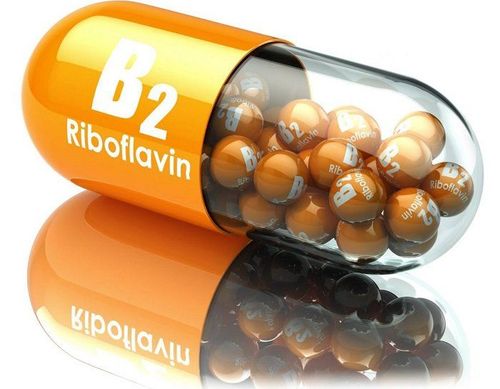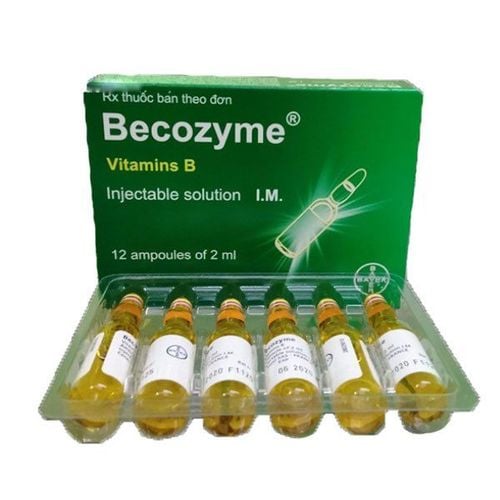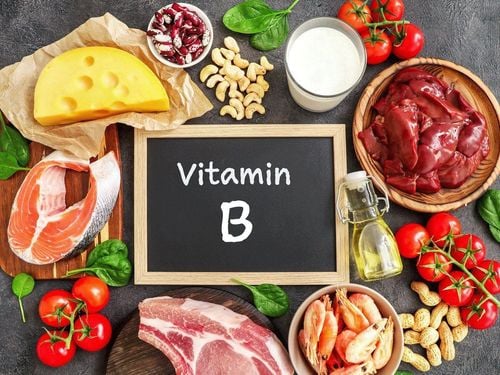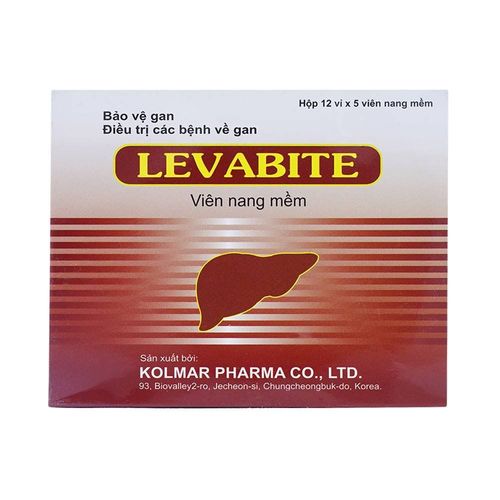This is an automatically translated article.
Riboflavin (also known as vitamin B2) is used to prevent and treat patients with vitamin B2 deficiency due to diet or certain medical conditions.
1. What does Riboflavin (vitamin B2) do?
Riboflavin is a B vitamin, indicated to prevent or treat vitamin B2 deficiency in people who are not getting enough of the vitamin from their diets. Most people who eat a normal diet do not need additional vitamin B2. However, certain medical conditions (such as stomach/intestinal problems, prolonged infections, liver disease, vitamin deficiencies due to alcoholism, cancer) can cause vitamin B2 levels to drop.
Therefore, Riboflavin plays an important role in the body, keeping your skin, eyes, nerves and red blood cells healthy.
2. Instructions for using Riboflavin
Riboflavin is used orally. Read the instructions for using Riboflavin carefully before taking or follow the instructions of your doctor. If you have any questions, you should consult your doctor or pharmacist.
Depending on your health condition and response to treatment, your doctor will prescribe an appropriate dose. Use Riboflavin regularly, exactly as prescribed for the drug to maximize its effects. To make it easier to remember, take your medicine at the same time every day.
Tell your doctor if your condition does not improve or worsens after taking riboflavin as prescribed. If you think you may have another medical condition, seek medical attention immediately.

Đọc kỹ hướng dẫn trước khi dùng hoặc thực hiện đúng theo chỉ định của bác sĩ kê đơn Riboflavin.
3. Side effects when taking Riboflavin
Using Riboflavin may cause your urine to turn bright yellow. This symptom is harmless and will disappear when the drug is stopped.
A very serious allergic reaction to Riboflavin is very rare. However, if you notice any symptoms of a serious allergic reaction to Riboflavin, including: Rash, itching/swelling (especially of the face/tongue/throat), trouble breathing, dizziness, get medical help. Visit your doctor for proper treatment.
This is not a complete list of possible side effects of Riboflavin. If you notice other side effects not listed above, contact your doctor for proper treatment.
4. Caution when using Riboflavin
Before taking Riboflavin, tell your doctor if you are allergic to this medicine or any other allergic condition. Riboflavin may contain inactive ingredients that can cause allergic reactions or other problems. Before taking Riboflavin, patients should discuss their medical history with their doctor. If surgery is required, the patient should tell the treating physician about the medications and herbs (both prescription and over-the-counter) that he or she is taking. Tell your doctor if you are pregnant before using Riboflavin. Riboflavin is safe to take during pregnancy if used as directed at the recommended dose. Riboflavin is likely to pass into breast milk and is considered safe during breast-feeding when taken at the recommended doses. Consult your doctor before breast-feeding.
5. Interactions between Riboflavin and other drugs
Interactions between Riboflavin and other drugs when used at the same time or in close proximity can affect the activity, effects and effectiveness of treatment. Therefore, patients need to talk to their doctor about the medications they are taking. At the same time, while taking Riboflavin, patients should not arbitrarily use, stop or change the dose of any other drugs.
Vitamin B2 may interfere with certain laboratory tests, resulting in false results. Inform laboratory staff and doctors if you are using a product containing Riboflavin.
6. Other notes when using Riboflavin
In case of vitamin overdose and serious symptoms such as shortness of breath, fainting, ... need to take the patient to the emergency room immediately. Visit your doctor regularly and carry out all the necessary medical tests while using Riboflavin. Riboflavin is not a substitute or supplement to a diet. The best vitamin supplement is to choose natural foods. Riboflavin can be found in milk, bread, fortified cereals, meat, green vegetables, and other foods. Consult your doctor, pharmacist or dietitian for proper vitamin B2 supplementation. If the patient misses a dose of Riboflavin, take it as soon as you remember. If it is almost time for your next dose, skip the missed dose. Use the next dose of Riboflavin as usual, do not double the prescribed dose. Check the product information leaflet or consult your doctor for ways to store vitamin B2. Knowing the information about Riboflavin before using it always brings positive effects as well as reduces risks for patients. Besides, if you have any questions, customers can send questions to Vinmec International General Hospital to receive in-depth advice from a team of doctors and pharmacists with many years of experience.
Please dial HOTLINE for more information or register for an appointment HERE. Download MyVinmec app to make appointments faster and to manage your bookings easily.
Reference source: webmd.com












